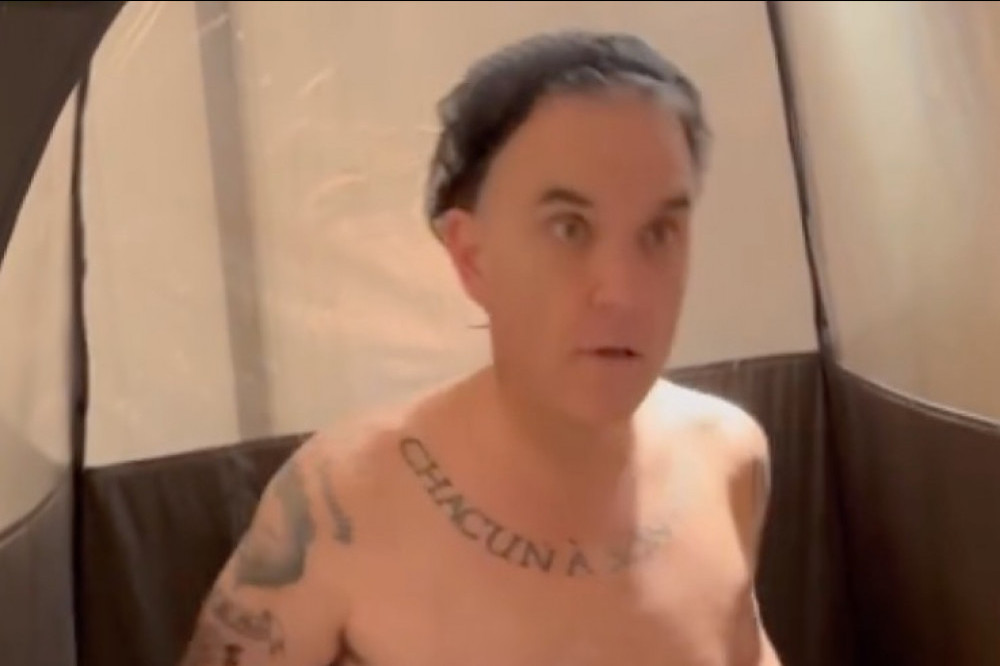Robbie Williams decided to film his Netflix documentary in his underwear because he wanted to be "comfortable."

Why Robbie Williams decided to film his Netflix doc almost naked
The 49-year-old pop star- who shot to fame as a member of Take That in the 1990s and went on to become a massively successful solo artist - has reflected on his rollercoaster career and personal struggles in an self-titled documentary released on the streaming giant on November 8 - and now filmmaker Joe Pearlman has revealed the crew's shock at filming the 'Angels' hitmaker almost naked.
Joe told Metro newspaper: "There was a moment on about day six,'. My cameraman, Sebastian Feehan, just turned to me and goes, 'What are we doing?' And I was like, 'What do you mean?' He's like, 'I'm staring at Robbie Williams' balls. What is going on?'. Rob wanted to become as comfortable as he could be. And that man loves being in his pants!"
Joe went on to add that Robbie's demeanor came as a surprise to him as he compared the 'Rock DJ' singer to fellow A-Lister Lewis Capaldi as he noted that both musicians appear to adopt a different persona when they go on stage.
He said: "'He's not the person on stage that I thought maybe he would be. 'But that's the performance. That's not the real person, it's the same with all these performers, like Lewis Capaldi They get on stage and they have to become something other. But Robbie, he's a very subdued, very kind, very loving person who just wanted to sit and chat and often just sit and be quiet."
Robbie previously explained that shooting the documentary was dealing with his issues at a "a very, very slow pace" as he recounted a time when he was on stage and left "terrified" when his mental health struggles kicked in.
He told The Sunday Times: "It’s like those nightmares where you don’t know what’s happening and you can’t remember anything and you’re terrified. It was like that all night.
"Oh, I've got them all! Dyspraxia, dyslexia, ADHD, neurodiversity, body dysmorphia, hypervigilance…
"It was like watching a crash you were involved in, but in slo-mo. [Making the documentary] was like enduring your mental illness at a very, very slow pace, over a very, very long time. And it’s a niche thing to experience, you know. There aren’t many support groups for it.
"When they asked me to make the documentary, I came up with a jingle for it. ‘Trauma watch!/ Trauma watch!/ Have a trauma watch!/ I was in Take That then I left Take That/ Then I did drugs and I got real fat. They didn’t use that in the end."
Tagged in Robbie Williams

